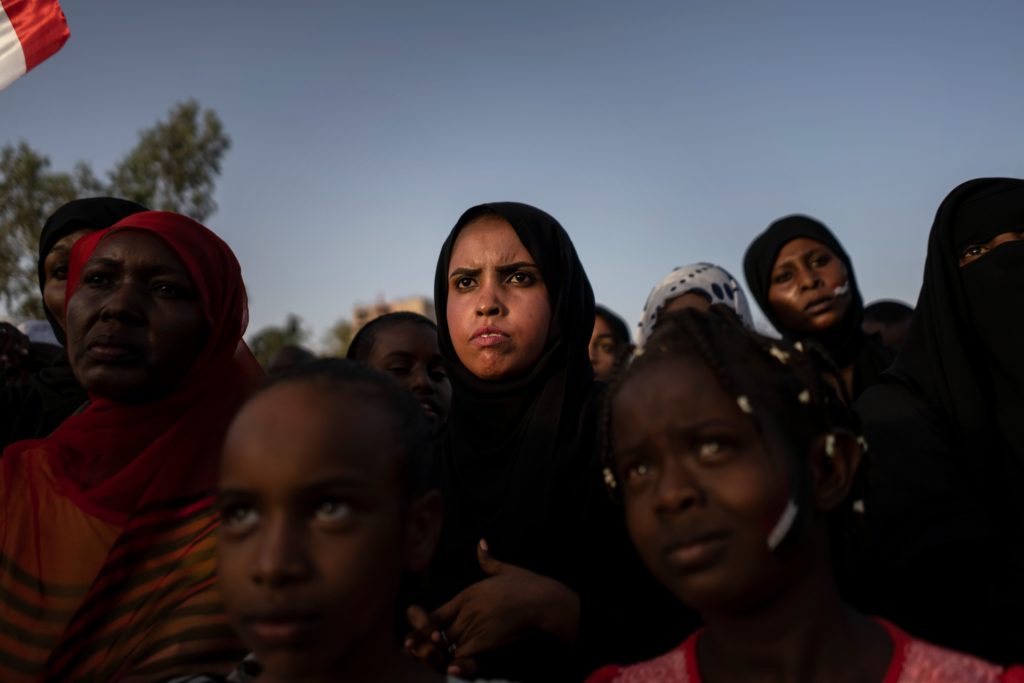As the bodies of their slain compatriots floated up along the Nile earlier in June, one thing was certain—the fight for freedom and justice for the people of Sudan was yet to be won. What should’ve represented a period of jubilant victory for the masses following the ouster of Omar al-Bashir has morphed into a deadly struggle for freedom and autonomy. In the last two weeks, under the direction of the Transitional Military Council (TMC), paramilitary forces have killed over 100 activists and civilians, raped over 70 women and severely injured hundreds more. These extra-judicial killings, coupled with an expansive use of force, is the next phase of the military’s quest for consolidation of power amidst the current power vacuum.
As with other authoritarian regimes, the “change” represented by the TMC isn’t any change at all. In December 2018, during the early stages of this uprising, the military extended their unwavering support to al-Bashir and his National Congress Party. In the subsequent months, however, threatened by the loss of public support in a growing climate of dissent, the military organised a coup to bring al-Bashir down and seized power, replacing him with their leader, Abdel Fattah al-Burhan. This ouster, as protesters were quick to recognize, was largely symbolic. In order for real change to be possible, Sudan has to be purged of the old regime, and the TMC represents much of the same, only without al Bashir. In the weeks following his power grab, al-Burhan has met with the heads of state of Egypt, Saudi Arabia and the UAE who have pledged $3 billion to the TMC leadership to “bring peace in the region,” money that has largely been arming the militia. Although headed by al-Burhan, the real reigns of power lay with the deputy leader of the TMC and leader of the Rapid Security Forces (RSF), Hemedti, who beginning in 2003 and under the instruction of al-Bashir, led the Janjaweed to commit genocide of ethnic minorities in the Darfur region. Today, comprised of erstwhile members of the Janjaweed, the RSF is the military council’s boots on the ground, and the partnership between these two forces represents the same threat of despotic military rule that has befallen other Arab Spring countries. Following the failure of talks with the Forces of Declaration of Freedom and Change (FDFC), a coalition of community organisers, activists and opposition parties that have been spearheading the uprising, the military council have been quick to seize power. The military repression today seeks to establish its power over the people with an iron fist.
But the resistance isn’t backing down. What started as a protest against a rise in bread cost in December, 2018, has now become an organised struggle against old hegemonic power and for the promise of equality and justice across class, creed and gender. Through large-scale protests, demonstrations, barricades and sit-ins, the radical masses not only forced the conditions for the ouster of al-Bashir, but were also organised in their willingness to fight for a united vision of a just Sudan. In what is a testament to the power of the will of the people, the struggle against authoritarianism has continued amidst increasingly deadly conditions. In response to RSF’s bloody crackdown on protesters that started with a violent dispersal of those at a sit-in on June 3 in front of the TMC headquarters, the FDFC announced general strikes and complete civil disobedience. June 8 and 9 saw historic general strikes that shut down the city of Khartoum. While the military junta played false propaganda over state media channels, calling the strikes a failure, the city was a ghost town, with most sectors of work reporting over 70% participation in the strike. Demonstrators and organisers have now banded together for the next round of resistance. Whether it is through barricading roads, organising teach-ins, going door to door with flyers, or attempting to break through the media blackout and sharing internet passwords to get news out of Khartoum to rally a global community, the work of the insurgency hasn’t stopped. Demonstrations following the massacre by the TMC’s forces haven’t just been limited to the capital city. Peasants and the working class across the country, especially in Darfur and Kordofan, took to chanting slogans demanding the fall of the military junta in the face of bullets and tear gas.
Though it is easy to paint the current situation in Sudan as just another humanitarian crisis in Africa, we must resist that temptation. After the two prior uprisings of 1964 and 1985 that were largely led by the urban elite failed to bring about any change in the material conditions of ordinary people, and instead devolved into a totalitarian rule that committed atrocities across the country, protesters are now far more prepared. Current protests have garnered widespread support because of their ability to mobilize the masses. In the months since the signing of the Declaration of Freedom and Change, protesters have held civic education circles, gathering ideas and feedback, and collaborating with citizens to formulate the makeup and functions of the transitional government. The movement’s organisation, led largely by the Sudanese Professionals Association, commits to restoring the power of trade unions, one that was eroded by the al-Bashir regime. In the streets, protests have not only broken through class lines, but have also inspired and invigorated large sections of the youth and women. In keeping with a history of Sudanese women assuming leadership in mass uprisings , women have, in large numbers, been at the front lines of these sit-ins and demonstrations. The Declaration, in its charter, calls for a systematic overhaul of Sudan’s democracy and reinforces the need for equality among genders and women’s rights and freedoms. Where there is a failure in leadership, however, the masses have to take power in their own hands.
The military council’s pushback and willingness to mercilessly slaughter innocents and nonviolent protesters to preserve oppressive hierarchie, has cost the resistance dearly. Following Ethiopia’s Prime Minister, Abiy Ahmed’s offer to mediate talks, the FDFC has shown willingness to return to talks with the TMC to find a “peaceful” resolution to the situation. The decision made by the FDFC to enter into talks with a group that has strategically killed hundreds of their ranks, while calling off civil disobedience, has been rightfully met with much criticism among the protesters, especially among the youth. Let’s be clear—there’s no negotiation possible with authoritarian seats of power. As Lenin writes in “On Compromises,” “the task of a truly revolutionary party is not to declare that it is impossible to renounce all compromises, but to be able, through all compromises, when they are unavoidable, to remain true to its principles, to its class, to its revolutionary purpose, to its task of paving the way for revolution and educating the mass of the people for victory in the revolution.” Any negotiation with the military going forward is one in bad faith since a compromise completely fails to deliver on the promise of destruction of the old order. Furthermore, while the FDFC claims to be representative of the diverse interests of the masses, it hasn’t yet stood up to or ejected the right-wing forces within their own ranks, like the National Umma Party, whose leaders have been critical of civil disobedience and are using the current climate to advance their political careers. For the movement to win from here, the nexus of power has to shift from the current leadership to the unions and neighborhood committees that have, for years and months, been the first to put their bodies on the line.
Although the movement currently is concentrated solely on the creation of a civilian government at the center, it is critical to go beyond the trappings of the imagined bourgeois democratic structures championed by the FDFC for there to be real, material victory. The promise for the same lies in the labor organizations and neighborhood committees that were not only the first groups to lead protests in December, but were also the first who defied the FDFC’s call to suspend civil disobedience and organised rallies and demonstrations last week. In the past months, these local groups have been the backbone of the movement. Whether through their collective organisation efforts, or by addressing community interests in regular colloquia, these committees have shown the potential to become self-governing structures for the people. If they break away from FDFC leadership, and develop democratic organs to lead the struggle with a basis in the unions, the working class and neighborhoods, they have a chance of creating dual power, one that’s based on organs of self organisation. Even further mass radicalization would be needed in order to make this sort of structure truly emerge. Like with the soviets in 1917 Russia, the transformation of these resistance groups into community-level councils independent of state control is key to dismantling state hierarchies and creating direct democratic systems run by those directly benefiting from them.
As the FDFC enters into talks with the TMC, we also have to be mindful of the other players in the room. State interventionism, especially by U.S. imperialist forces, has wreaked havoc in the region for decades. On Wednesday, June 12, the U.S. Department of State issued a statement calling for peace in the region and sent special envoy Donald Booth to broker talks between the FDFC and the TMC. Although the European Union and the U.S. have released statements of support for the people of Sudan to keep up appearances, they’ve withheld the criticism of the actions of their allies in the region. As the TMC leans on their ties with Egypt, Saudi Arabia and the UAE, the only role that the U.S. has in this situation is to grab their friends and leave. Any further involvement by state forces in influencing a compromise that endangers the people’s movement needs to be met with popular resistance. The unprecedented levels of sustained mass agitation has created a rare opportunity that can truly put power in the hands of the masses and it shouldn’t be squandered over compromises for half-wins. The fight for dignity and a better Sudan can’t be held hostage to international state diplomacy. At this hour, the only form of international solidarity that is required is that of class solidarity that puts the interests of the working class men and women of Sudan at the forefront as they fight to dismantle colonial, capitalist structures that have crippled them.
Early in April, shortly before the fall of al-Bashir, a photo of a 22-year-old student, Alaa Salah, went viral, and for a fleeting moment, then, we looked towards Sudan. In her flowing white thoub and large golden earrings, she stood atop a car with her finger raised, speaking to a crowd of protestors, and we watched. What was lost in the iconography of the moment was the character of her words as she spoke to the crowd. Borrowing words from the Sudanese poet Azhari Mohamed Ali, Alaa reminded her crowd, “the bullet doesn’t kill. What kills is the silence of the people.” It’s time we paid heed to her words and made some noise.











